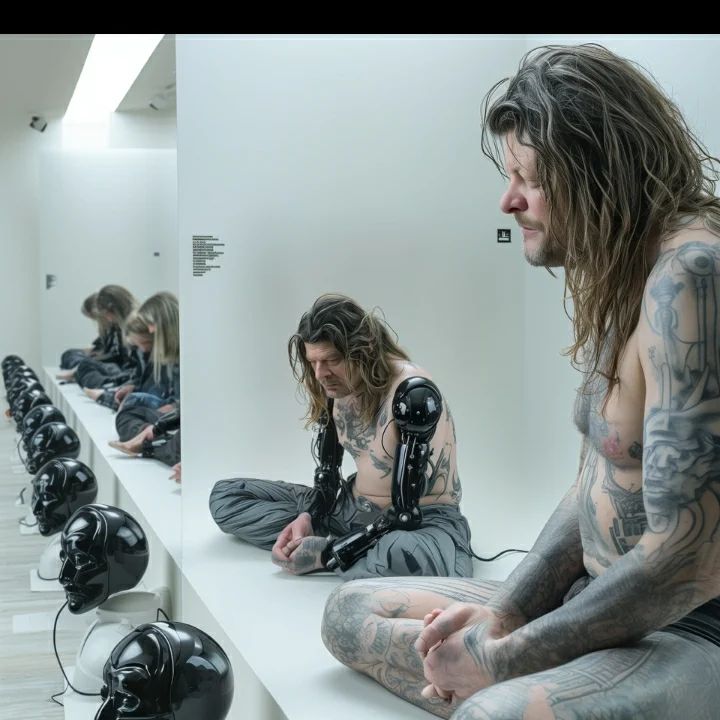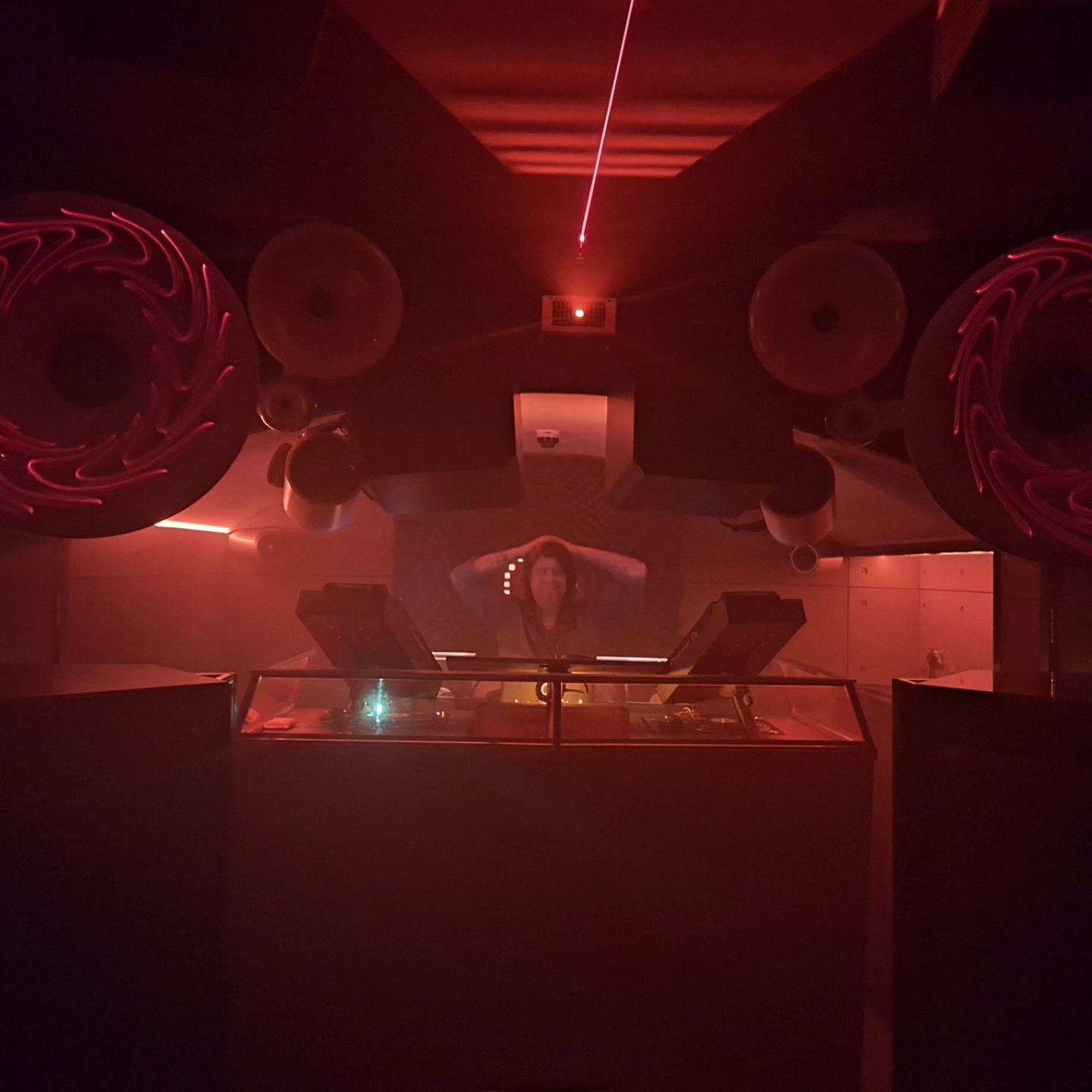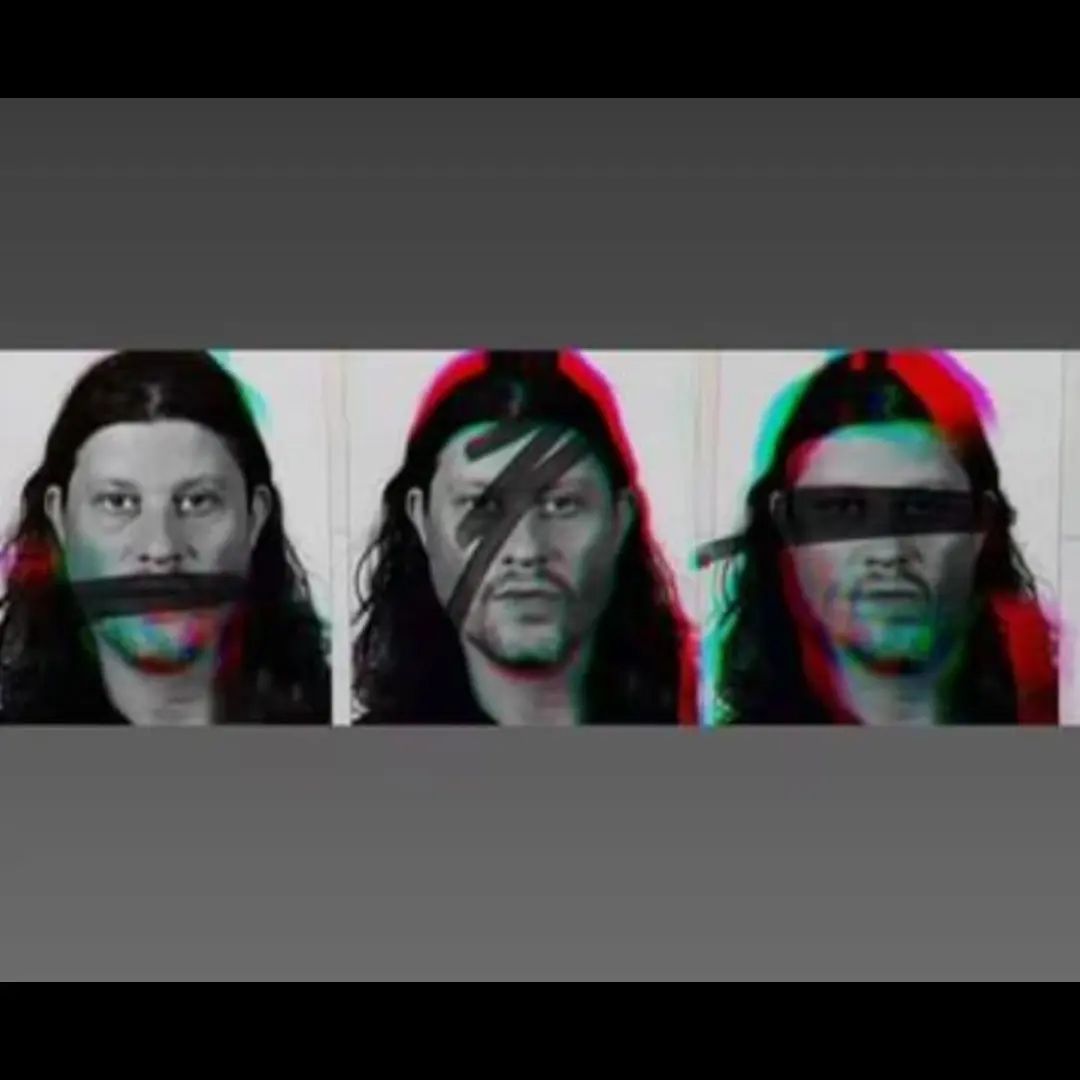San Proper, also known as Dr. San Proper, is a key figure in Amsterdam's music scene and is most well-known for his unique musical style and larger-than-life personality. With ties to Trouw, Rush Hour, Dekmantel, and Red Light Radio, he's an unofficial city mascot. His musical journey began as a guitarist in popular bands and evolved into a solo career with a rock 'n' roll attitude. San Proper's work with Rush Hour and Dekmantel highlights his influence. A versatile DJ, he mixes soul, funk, hip-hop, rock, dub, disco, and house, as heard in his 'Dr San Proper Soul Show' on Red Light Radio. Globally acclaimed, he remains true to his underground roots.
At the time of this recording, I think it’s been two weeks since you came to Toronto, and I’m wondering if you can reflect on your trip and your set at Standard Time?
It's still in my system. It was memorable. First of all, I came to visit a friend who lives in Victoria, Vancouver Island after traveling from Mexico, Medellin, Bogota and Tulum. The whole South American thing was fun and very interesting, and very emotional too. Then I traveled from Medellin to Mexico City to take the connecting flight to Victoria to stay there for a week, and also, to do the radio stuff and, of course, the club nights. It actually brought me back to base even more. I was walking around this boring city and having the best time of my life because it's very mellow. People in the street, old people who also wanted to smoke a cigarette, old ladies, they immediately connected with me. This is a weird thing about Canada, you know? People are so sweet. It really reminds me of Japan and Berlin at the same time, you know?
Absolutely.
My friend moved to Victoria with his family to let these kids grow up in a better fashion than in Berlin. I felt like one of the kids. I didn't even go to the coffee shops they have out there. I didn't even go to the record stores they have out there. I was just walking the street, chilling, writing, taking photos and, you know, being home for supper. Then I flew four or five or six or seven hundred kilometers back to Toronto to do this party before heading back home to Amsterdam. It was such a crazy good experience. The Toronto gig was fantastic. Standard Time was fantastic. The whole Canadian experience this time was very important, and I actually want to come back as soon as I can.
How often have you visited Canada?
I've only been to Canada like six times. Only once in Toronto, and the other four or five times I was in Montreal, so I never experienced this side of Canada; Victoria and Vancouver. Unfortunately, shit got cancelled in Vancouver, but I'm sure I'll make it out there at one point sooner or later. I didn't see anything about Vancouver. I went straight on the ferry, without Wi-Fi, and I made it out there in a split second, because everybody was so nice and helping me. I had a crazy good experience in Victoria, and I noticed that the whole underground club scene is very vivid and strong at the moment, because there's not so much happening. But what's happening, people take it very seriously, you know.
That’s really cool.
Yeah, it's fucking cool man. And this is what I do, I play underground music and usually when I play cities or countries where it's not really happening so strongly, I tend to notice that the people actually appreciate it even more and they start crying on the dance floor while laughing at the same time.
They show the full range of emotions.
Yes, underground. And because there's not that much stuff happening you can really detect immediately that people are not blasé about it. They are celebrating it together with you, and people look at me like “wow, what are you doing? You are the best DJ.” I say, no, I'm not the best DJ, because without you there is nothing happening. We do this together: ensemble. You know? When there's an underground scene happening it's a result of me the DJ playing the music we just happened to play, but it’s also the crowd being receptive.
There's a lot of focus on euphoria, the feeling of connection, and the collective joy in your music.
Word to the fullest. This is exactly what it's about. It's not me. It's us. It's not me. It's you, and me, and me, and me, and you, and you, and you, and me, and us. That's underground, baby.
When you first began playing music, you were more of a guitarist.
Yes, but I was eight o'clock, eight years old when I started playing guitar. I started out as a young guitar player and then just collecting music. I didn't even consider myself to be a DJ at all. I thought DJs are shit people. I just have a great selection which I have to share with everyone. Then at one point, I started noticing that other DJs suck, so I was like, if that's the case then I also consider myself a DJ. This was like the mid-90s. Then I was actually embracing what I do as an artisan: to be a selector and a DJ and present this music until the day that I die, and even maybe beyond my date of death. So that was around the late 90s, and then around 2000 I started really getting a renowned name here in Amsterdam and doing occasional gigs in Europe. Then in 2010, when my music finally got released, I started blowing up and touring more abroad in Europe, Brazil, and Japan.

So most of the time you're travelling?
Yeah, and this is quite depressing to be honest, because you spend a lot of time at an airport, or in a bus, or taxi – but mostly on an airplane. You perform for two hours, but you travel 10 hours. Well, do the math, and then you realize that there's no time to kiss your girlfriend, mother, or your friends, you know what I’m saying? This is quite disturbing in a way, but then again, I'm a missionary, so it's totally worth the money and the time.
There's no other way to really get that ‘in the room’ connection with other people.
It's part of the game, but sometimes you think: wow, I'm so silly, I waste most of my life at an airport. Which is almost the opposite of the discotheque.
Yes, exactly. The International waiting room.
You have to be patient.
I wonder if you can describe a little bit about what it means to be a selector.
I can easily break it down in a nutshell, or crack the walnut in a nutshell. First, there's no book of golden rules about being a DJ, but what I keep on telling people is: if you have in your bag – not your pen drive or USB key – a limited amount of space, half of it should be something you recently picked up with this kind of convincing attitude that people just gotta hear this, your latest stuff that you just need to share it with anyone ready to embrace it, and the other half should be filled with music you rediscovered from your own collection, where you go “wow, I totally forgot about this record.” This is the way I play.
Yeah, that makes a lot of sense.
I've been practicing this for 30 years, so it obviously makes sense [Laughs]. I always keep on telling people: it's not me, It's us, and this stuff, it's medicine. This music is something I have to share. I cannot keep it to myself. That would be…
Selfish?
It would be insolent. It would be silly if I kept the music to myself, because I know it's gonna be medicine for you and everyone. This is the way I have convinced myself to keep on doing this, but also it's the reward and the actual reason why I do this, and keep on doing it. I can't keep it to myself all the time. This is something you have to share. It's music. It's medicine. Like Chuck D from Public Enemy said: music is medicine, it should be free for everyone. Maybe I'm trying to make the Canadian dollar when I play in Toronto, but that's only just because it's impossible to travel halfway around the globe otherwise.
Does this philosophy translate to your production work?
Yes, yes, and yes. Usually when I stay a couple of extra days, I don't go out into the city, instead I hit the studio with local producers. Everywhere I go, and I stay a couple of extra days, I'm immediately checking out who's making music and who wants to get down in the studio with me. If they have a guitar, a mic, a bass guitar, a synth, and a drum machine – and they have something laying about they can't solve themselves – then I ask them to jam. This is something which is a part of the travel I do. It's not only about the DJ sets and the club nights, it's also about the radio shows and the jams with local musicians. This is the gospel of music culture.
Amen. Do you improv during these studio sessions?
Yeah. Of course. I hear some producer with a tight studio, and then I hear something which makes sense and I immediately get in there and I take a piece of paper and I write some silly promiscuous lyrics and then boom we record it. I play a guitar lick on top of a synthesizer bass line and I put some hand percussion on top of a drum computer program and all of a sudden you have something organic which is making total sense and actually has a little bit of poetic lyrics on top.
It's all in the moment.
That's the way I jam. it's in the moment, yeah. Always. Also, to get back to your earlier question, because I've been playing with bands and the live stuff since I was an early guitar player, it's actually quite natural and easy for me to jam and improv like that. But it usually doesn't sound like improv at all. It sounds as if it makes total sense. It's not even my fault. I just do it and I don't even need credit for it. We just do it together and it makes sense if you work for three, or five or six, hours together in a studio and all of a sudden another hit from the grill pops out. It's usually something which is just falling into your lap instead of, you know, trying to take credit for whatever's happening and whatever pops up.
When it's overworked, or when you work on it too much, it doesn't sound alive.
Exactly. I totally agree. I keep on telling people: don't be a perfectionist, just keep it very street and very soulful and don't take don't take credit for perfectionism. I keep telling people that the longer you work on the track and the more you try to perfectionize it, it's kind of insulting towards the next track you're supposed to work on, because time is money, and economics will suck it up. So instead of fine-tuning and finalizing and then perfectionizing stuff it's actually way more Inspiring to keep it sloppy and work on the next track as soon as possible. You know, if you have the right content then it's just a matter of mixing it and the structure of your composition and just finalizing that in a split second and start focusing on the next track.
Did you work with anybody when you were in Toronto? Did you visit any studios?
I did, but let's wait on that. I enjoyed the DJ set and the vibe, of course, but also the energy of East Room. That was also a jam for me in a way. These guys are fantastic. The location was fantastic. The sound and the moment were fantastic for me.
You sent me a couple tracks recently including “Night Susan” and “Boom-a-rang” with Club Warme Deken and Kees van Driel. They are very funky. Can you tell me how those came about?
Well, I can't tell you too much because it speaks for itself. [Laughs] I started the Club Warme Deken with a couple of heads from Amsterdam here. It's not my label, but I'm definitely affiliated with them and did most of the tracks we are putting out together. We set up a live show with three guys with cymbals and guitars and vocals, and a lot of computers and a couple of synths. This is Club Warme Deken. It means warm blankets in Dutch. That kind of reflects the sound we are putting out. It's this electronic sound like a warm blanket you wrap around you when you hear the music.

It’s very comforting.
Yes, but also very woolly. [Laughs]
[Laughs] Yes, which is necessary. When you're out in the cold you need ways to survive. It's not just about comfort, it’s about survival.
Word. Especially up there where you live! The poetic thing about a warm blanket when you listen to electronic music is important, because sometimes it's so sterile and so reliant on bangers instead of the soulful side of electronic music, which is important for people to embrace.
That's the healing part. I mean every bit of it is healing, but I feel personally that the stuff that is low-key and soulful is very rejuvenating.
Yeah, also you can even translate it into sex, you know. If you want to get banged hard it's nice for a second, but if you make love smoothly, you can extend it for hours and hours and have multiple orgasms.
Pure pleasure. Both are good but at different times. Sometimes you want to go out and hear all bass drops all night long, but sometimes you want it lengthened and extended.
And teased, and played around, and pleasure the other one.
Not just yourself
Patience is a virtue
So you just landed back at home, what are some things that you do to reset and get reacquainted with home?
I shiver and I put like three blankets on top and then I try to not feel sick! [Laughs] No, but I have to be on point all the time. I'm a freelancer, and if I'm not on point then I probably won’t have gigs and then I go home broke again. So, I have to be a little bit on point. Today I went to the library to just do some work, but also to change the scenery, and work on the business a bit, which Is my artisan.
Do you go to any restaurants or anything to help you feel at home?
No, I'd rather cook for my friends at home.
That’s nice.
Yeah, but it's also a question of spending dollars. Amsterdam is quite expensive and the restaurant business out there is a little bit shaky in a way. I know many good restaurants, but I just don't go to restaurants by myself, you know. I’d rather get invited, or treated.
You want to be around the people and have these relationships.
I keep this connection more for the weekends and the clubs. If you have 600 people, more or less, it's still a crowd, and this energy is noodling and taking a lot of your energy. So on a Tuesday or Wednesday or Thursday I focus on studio time and producing if I'm in Amsterdam. The weekend is about performing, doing shows, and traveling. This is the artisan of old-school DJs from the 90s.
You're keeping the spirit alive.
Yeah. I also need to pick my moments to kind of hibernate during the week.
Are you in hibernation mode now?
No, I’m talking with you!

[Laughs] Yes, but when you hang up.
I've been working at the library with my laptop, and I actually have a beautiful guest here. She brought me some food to make sure that I didn't starve to death. [Laughs] I have a lot of people coming over all week long actually. I keep the social vibe alive in my house. This works better for me. I have a couple of appointments tonight, but I'm definitely gonna call it an early night around 11 or midnight, then I'll be home in bed.
Is this time of year a busy one for you? and what's coming up next for you? Are you hitting the road again soon, or are you gonna stay put for a bit?
I did like two amazing gigs here in Amsterdam just now. These were like local local gigs which were also quite astonishingly and surprisingly cool. Then I went to Brussels, Belgium just last Sunday, and this coming weekend I’m doing Antwerp. Then the weeks after I'll be doing a tour in Asia.
Wow. That’s a lot.
Yeah, but I'm still looking for gigs for the rest of my life, so if you have a good idea, please let me know: bookingsanproper@gmail.com, just hit me up and I'll come over in a split second!
–Work Redux is a collection of mixes made to be listened to while working. We work closely with local and international DJs to assemble thoughtful music that will carry members throughout their day and introduce them to new sounds. East Room is a shared workspace company providing design-forward office solutions, authentic programming and a diverse community to established companies and enterprising freelancers. We explore art, design, music, and entrepreneurship. Visit our news & stories page to read more.